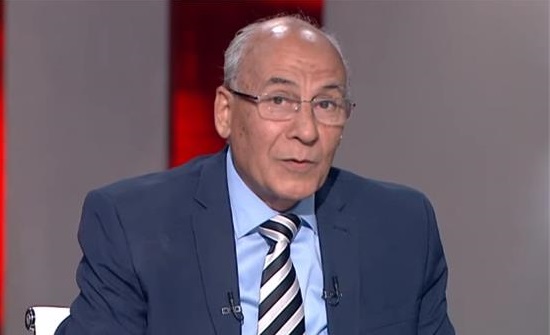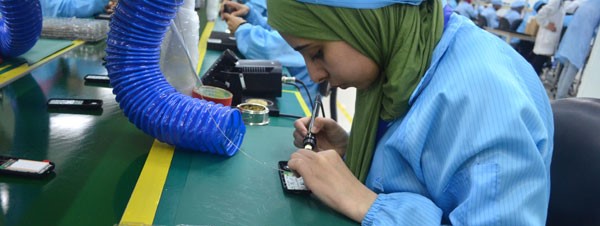“Egypt still needs many more beds to be added to its capacity and we need enough investments to build this.”
Egypt’s healthcare industry remains attractive to both local and international investors, with many areas for development and expansion. The sector enjoys a strong workforce with a high number of doctors, specialists and nurses, as well as attractive prices from a global perspective. Even though the market is highly fragmented with most healthcare facilities in Cairo, it still represents solid investment opportunities.
In January 2020, Assem El Gazzar, Minister of Housing, Utilities and Urban Communities, laid the foundation stone for CapitalMED, the largest medical city in the region, located near the New Administrative Capital. CapitalMED is scheduled to begin operations in the first quarter of 2023; it is being implemented by Egyptians for Healthcare Services (EHCS), a privately owned, joint-stock company founded in 2014. It is dubbed “the capital of medicine in the Middle East,” putting Egypt on the map as the premier medical tourism hub for populations locally, regionally and internationally.
Hassan El Kalla, CEO and chairman of EHCS, discusses Egypt’s medical tourism potential, challenges in the sector and his hopes for investor participation in many areas across the sector, such as data management.
What’s Egypt’s potential in healthcare?
Egypt can be a regional hub for providing healthcare. It can be the go-to place for medical tourism in the world. We have what it takes, but we need to mobilize efforts first. We need more investments to upgrade and build new healthcare facilities.
How is the sector performing in the current climate?
Very little has been invested in healthcare in the past five years compared to our needs. Our population doubled in 20 years and the healthcare infrastructure did not grow at the same pace. Egypt still needs more than 20,000 beds added to its capacity.
What are the challenges in the healthcare sector today?
The poor, not-up-to-standards education of doctors, nurses, technicians and technologists. If we do not immediately upgrade those specialties, Egypt will be very far behind. Another challenge is technology. It is advancing every single day in equipment, techniques and information systems. We need to be able to follow trends to bring hard currency into the country and benefit from existing capabilities.
Which areas offer interesting growth opportunities?
We need investments in elder care, assistive bedding equipment and long-term care. We do not have enough space in Egypt for someone who has a chronic disease to be given quality, affordable care at a hospital. Also, nursing homes are an area in the market that is very underfunded and underutilized. Another area is behavioral sciences, especially mental health. We have in Egypt only two or three rehabilitation hospitals and that’s about it. We really need to expand on this. Wellness hospitals, too, (which focus on prevention, improved patient access to diagnostic and therapeutic outpatient services, increased primary and specialty physician space) are very much in demand among some Egyptians. They even travel to countries like Romania and Russia to receive this type of care while Egypt has the weather and the potential to be an international center for wellness tourism.
How can Egypt best leverage investor appetite?
The private sector should jumpstart and invest more in healthcare and offer lucrative, successful examples to the world. The private sector is usually more capable than the government. The role of the government, of course, is always welcome as regulator or facilitator, but not as the service provider. Additionally, regulations need to be revisited and revised. Some bureaucratic steps have to be removed for a smooth investment experience, especially because healthcare is a long-term investment. It can take a year to issue a license for hospitals. Such a long wait is a huge deterrent for investors. It’s really painful, but at CapitalMed we take it as a national challenge.
Why did you choose Egypt to develop CapitalMed?
With a population of more than 100 million, Egypt is the largest market in the Middle East and North Africa. There is evident availability of medical staff in all specialties in Egypt, where private healthcare services in hospitals and clinics receive 66% of the total health services expenditure. In Egypt, there is a steady increase in demand for health services of 16%-35% per year. There is increased demand for sophisticated and high-quality healthcare services. There is high potential for health tourism in Egypt, where the international market is expected to reach $100 billion annually. The idea has been translated into an unprecedented project that will cater to both local and international needs.
What kinds of services will the project entail?
It’s a one-stop-shop for all medical needs. The project will be established with investments of about EGP 18 billion. The total area of the project is 150 acres. It will have 170 doctors’ offices, a 375-bed hospital, a rehabilitation institute, a wellness institute, an emergency and trauma complex, an organ transplant unit, nursing homes, and long-term care. The total capacity is more than 2,000 beds.
How did you choose the project’s location in Egypt?
We knew about the plan for the New Administrative Capital (NAC) and decided to grow in parallel. Cairo is growing very fast toward the east in the direction of the NAC. Our project is located on Suez Road by the first entrance to the NAC. We will provide healthcare to the new capital and to communities like Shorouk, Madinaty, Al Rehab and even Heliopolis. We’re only four minutes away from the Regional Road, which gives us access to all of Egypt. We are 20 minutes away from Cairo International Airport.
When is the project slated for completion?
We are now in the construction phase. The project has been designed by American firm HKS. It will be operational by the first quarter of 2023.
How different is it investing in new cities vs. older ones?
New cities are better planned. The price of land is much cheaper. Policymakers support development much more. In new cities, you find enough space to properly plan the project.
What is the availability of hospitals and medical centers in NAC targeting all income groups?
At CapitalMed, we decided to dedicate 10% of our beds to the underprivileged or those who cannot cover the cost of services. The city will be a world-class healthcare destination. This care will be available for everyone, even tourists. The universal healthcare coverage that the government is implementing will also streamline accessibility.
Is it better to invest money in new medical centers rather than renovate older ones?
We need both. We need to upgrade the quality of existing facilities to modern standards. At the same time, we have a huge gap in the number of beds, so we need to build new hospitals and medical cities. Those investments go hand-in-hand.
What changes do you hope to see in Egypt’s healthcare?
The entire system needs an update. We have some amazing doctors and staff. We need more. With some fine-tuning, our medical care will exceed all expectations. We need to find a framework that is conducive to providing quality healthcare.
This Q&A has been edited for length and clarity.







